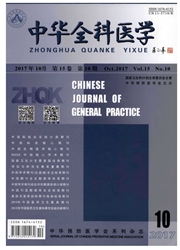

 中文摘要:
中文摘要:
目的 观察体验式教学法在新护士临终关怀教学中应用的效果。方法 选取2015年9—12月华中科技大学同济医学院附属同济医院新进护士80名,将其分成常规教学组和体验式教学组。常规教学组采用传统的教学方法,即由一位具有教学资格的临床护士带教一名新护士,带教护士根据教学任务就临终患者临床典型症状、常见护理问题进行讲述和分析的方法进行教学。体验式教学组则按照体验式教学法的要求将护士分组,每个小组由护士自荐或推选出1名组长,负责组织小组成员病例收集、查阅资料、护理实施等。每组护士在经过体验式教学法培训后的临床指导老师的指导下,模仿责任护士对患者进行全方位的护理体验,护理体验中,指导老师定期组织护士分析讨论体验中存在的问题并加以改进。教学完成后,分别观察2组护士在师生交流、表达沟通、护患关系、团队合作、评判性思维、护士满意度的差异,并评估2组护士护理的患者满意度的差异。结果 体验式教学组中有85.0%、82.5%、77.5%的护士认为体验式教学能有效提高护士自身表达沟通能力、团队合作能力、评判性思维能力,护士对教学方式的满意度明显高于对照组(P〈0.05)。同时,体验式教学组患方的满意度也明显高于对照组,差异具有统计学意义(P〈0.05)。结论 在新护士的临终关怀教学中使用体验式关怀教学法能有效提高教学效果,并能有效提高患方满意度,值得在临床的护理带教中推广。
 英文摘要:
英文摘要:
Objective To observe the efficacy of experiential teaching in terminal care education among new nurses. Methods Eighty new nurses were enrolled from our hospital in 2015, which were divided into two groups:conventional teaching group and experiment teaching group. In the conventional group, traditional teaching was used. Each new nurse was taught by a qualified clinical nurse about the typical clinical manifestation and common nursing problems of terminal patients. While in the experiment group, new nurses were divided into little groups with leaders. The leader in each group arranged their members to collect cases, to consult relevant materials and to perform the nursing care. Each member was instructed by a qualified supervisor to perform comprehensive nursing care to patients ,just like a responsible nurse. Regu- lar communication and discussions were organized by the supervisors to analyze and resolve problems in the experience process. After the teaching process, the relationship between nurses and patients, communication ability, cooperation ability, critical thinking, the satisfaction degree of nurses, and the satisfaction degree of patients between two groups were com- pared. Results There were 85% ,82.5% and 77.5% of the nurses in the experiment group who thought that experiment teaching could enhance their communication ability, cooperation ability, and critical thinking respectively. The satisfaction degree of both nurses and patients in the experiment group was apparently higher than that in the control group ( P 〈 0.05). Conclusion Experiential teaching could improve the efficacy of terminal care education among new nurses, and increase the satisfaction degree of patients. It is worth extensive application in the clinical nursing teaching.
 同期刊论文项目
同期刊论文项目
 同项目期刊论文
同项目期刊论文
 期刊信息
期刊信息
